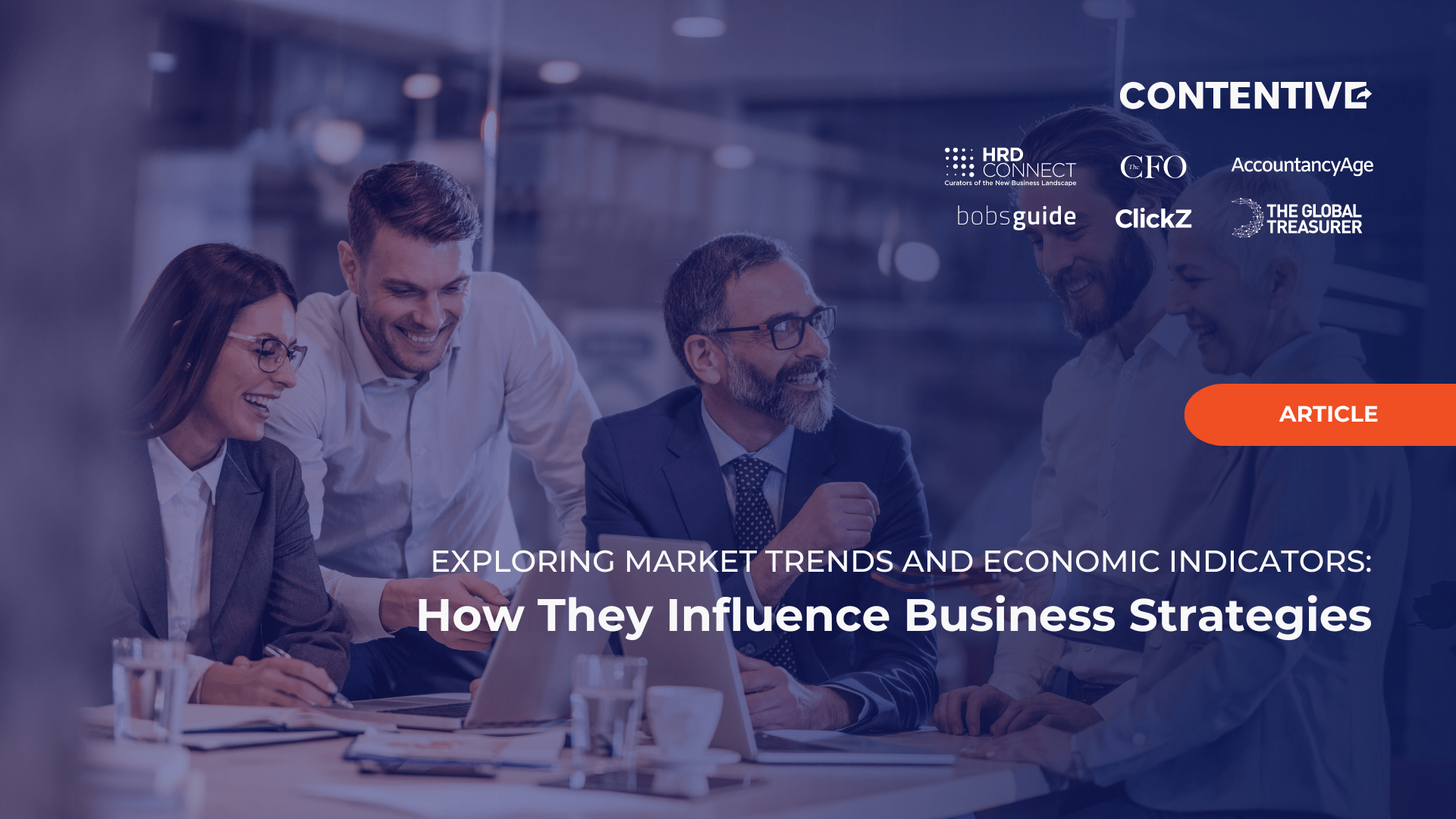Whether we like it or not, we are all affected by market trends and economic indicators. Staying informed about the market and economy is a crucial component of business growth – especially when it comes to strategic decisions. How then, do market trends and economic indicators shape business strategies? And how can we learn from them?
Adapting to Market Trends
Market trends indicate the direction in which market conditions are moving, influenced by various factors such as technological advances, shifts in consumer preferences, and socio-economic changes. For businesses, keeping an eye on these trends is essential as they offer insights into potential market opportunities or threats. For example, the increasing preference for using AI is pushing companies to rethink their business practices, roles and marketing strategies.
Accounting firms, regularly discussed in our Accountancy Age publication, are increasingly adopting innovative technologies to enhance their services. These firms must stay abreast of technological advancements as well as evolving client expectations. For example, the shift towards cloud-based accounting platforms and real-time financial reporting has pushed these firms to invest significantly in modern accounting software and robust cybersecurity measures. This ensures they can offer their clients convenient, secure, and up-to-date financial insights.
As accounting practices rapidly evolve, firms must remain agile and responsive to maintain a competitive edge and continuously innovate their services.
Responding to Economic Indicators
Economic indicators are vital statistics that reflect the current economic health and predict future performance. Economic indicators such as interest rates, inflation, and investment flows can significantly impact businesses. These indicators influence consumer spending and saving habits, which in turn affect how products are designed and marketed.
Impact on Business Strategy
- Strategic Decision Making: Armed with knowledge about market trends and economic conditions, businesses can make strategic decisions that align with current and anticipated market realities. For example: If economic indicators point to an economic slowdown, fintech companies might adjust their strategies to focus on financial wellness tools that help consumers manage their budgets more effectively, or offer services that provide higher security and yields for savers.
- Risk Management: Economic indicators enable businesses to identify potential risks in the economic landscape. For example, a rise in unemployment might indicate a reduction in consumer spending, prompting businesses to adjust their sales strategies to maintain profitability.
- Resource Allocation: By understanding which trends are gaining momentum, companies can allocate their resources more effectively, investing in areas with the highest growth potential. This ensures optimal use of resources and maximises returns on investment.
- Leveraging Data for Competitive Advantage By leveraging the power of data analytics, fintech companies can gain insights into customer behaviour, predict market trends, and develop personalised financial products.Example: Utilising data analytics, a fintech firm can identify patterns in consumer spending and saving, enabling them to tailor their financial services to better meet the needs of specific demographics or market segments
How KPMG Adapts to Market Trends and Economic Indicators
- Regulatory Changes and Compliance Trends: KPMG stays ahead of global regulatory changes, ensuring that their audit and advisory services remain relevant and necessary. For instance, with the introduction of new data protection laws like GDPR, KPMG has developed specialised services to help clients comply with these regulations, demonstrating a proactive response to legal trends.
- Economic Conditions: KPMG uses economic indicators such as GDP growth rates and market volatility to provide targeted financial advice to their clients. During economic downturns, they offer strategies for cost reduction and risk management, helping clients navigate challenging economic landscapes.
- Technological Advancements: Recognising the shift towards digitalisation, KPMG has invested in technology to enhance their own operational efficiencies and to expand their consulting services in the areas of cybersecurity, blockchain, and artificial intelligence. This aligns with the trend towards more tech-driven, secure, and efficient business processes.
KPMG’s strategic use of market intelligence and economic data ensures that they adapt their business practices and provide clients with informed, timely advice that addresses current market realities. This approach has been highlighted in several pieces within Accountancy Age, showcasing KPMG’s leadership in adapting to market and economic shifts.
Staying at the forefront of industry trends, innovations, and best practices enables businesses to adapt and realign business strategies accordingly; crucial for ongoing success and growth.
Whether you’re looking to grow your business, stay informed on important developments, or capture the attention of your target market, Contentive has the tools and insights you need to succeed.
Lead in your industry with insights from our publications and discover how Contentive can transform your outreach and lead development strategies.
Engage with us today and become part of a community that’s driving the future of business, one insight at a time.
This is why at Contentive, our insight-driven content has been tailored to leading news brands, such as Accountancy Age and The CFO, that shed light on the intricacies of your specific challenges. Founded to serve as a pivotal resource for financial leaders, The CFO combines our world-class AI-driven content studio with buyer intent-graphs in order to empower finance leaders to shape the future of their enterprises. Beyond growing your understanding, our powerful brands support B2B technology companies in their outreach, content creation, and lead development efforts.




